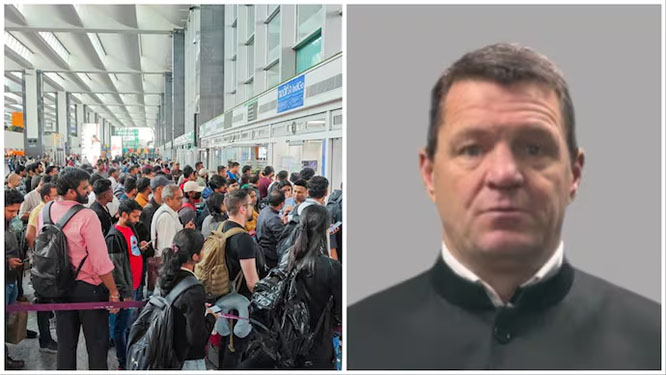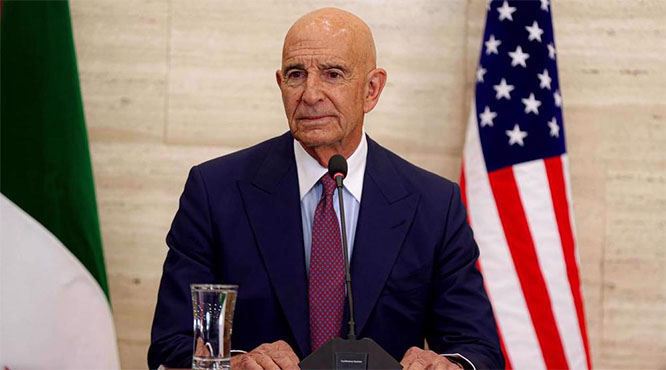New Delhi, The Supreme Court on Wednesday refused to entertain petitions filed by the NIA against the bail granted to 17 Popular Front of India members in the 2022 murder case of RSS leader Srinivasan in Kerala's Palakkad district.
A bench comprising Justices Abhay S Oka and N Kotiswar Singh noted that the Kerala High Court order granting bail to the accused is one-year-old and the HC has the power to cancel bail if the conditions are violated.
"Our attention is invited to observation made in the last part of the impugned order by which high court has reserved liberty to the petitioners to apply to special court for cancellation of bail.
"Therefore, the petitioners can always apply to the special court for cancellation of bail on the grounds which are set out in the affidavits filed in these petitions. In fact the special court will be the more appropriate court," the bench said.
The top court said the agency can satisfy the special court about the breach of terms and conditions of grant of bail by producing materials against the accused.
"Therefore, at this stage we decline to entertain the special leave petitions with liberty to the petitioners to move the special court/high court for cancellation of bail. Needless to say that if the prayer made by petitioner does not succeed before the special court/high court remedies of the petitioners remain open.
"We make it clear that as and when application is made for cancellation of bail the special court or high court should not be influenced by the fact that this court has declined to entertain the present special leave petitions," the bench said.
During the hearing, Additional Solicitor General Raja Thakare, appearing for the NIA, sought cancellation of the bail and submitted that the accused have violated the bail conditions and have contacted the witnesses.
The Kerala High Court on June 25, 2024 granted bail to the 17 accused PFI members, who are also facing trial for allegedly instigating communal violence in the state and other parts of the country.
Granting bail to 17 of the 26 accused, the high court imposed stringent conditions, which include sharing their cellphone numbers and real-time GPS locations with the investigating officer.
Aside from that, the accused were ordered not to leave Kerala, surrender their passports and keep their cellphones charged and active round-the-clock.
It had directed the 17 to "present themselves before the special court which shall enlarge them on bail on such conditions as the special court may deem necessary".
Initially, 51 persons were arraigned as accused in connection with the murder of Srinivasan on April 16, 2022. One among those held died while seven others are absconding.
Chargesheets against the remaining persons were filed in two phases in July and December, 2022.
While police was investigating the murder, the Centre received information that the office bearers and cadres of the Popular Front of India and its affiliates in Kerala had conspired to instigate communal violence and radicalise its cadres to commit terrorist acts in Kerala and other parts of the country, the high court noted in its order.
Therefore, the Centre in September, 2022 directed the National Investigation Agency to take up and probe the case against the accused.
On December 19, 2022, the Centre, referring to Srinivasan's death, opined there was a larger conspiracy hatched by the leaders of the PFI "which has grave national and international ramifications" that needed to be "thoroughly investigated to unearth the wider conspiracy and to identify the other accused".
The Centre directed the NIA to take up the probe in the murder case as well, and the agency filed its consolidated chargesheet in 2023 with two supplementary chargesheets later.
Immediately after the respective NIA chargesheets were filed before the special court, the accused moved for bail.







Comments
Add new comment